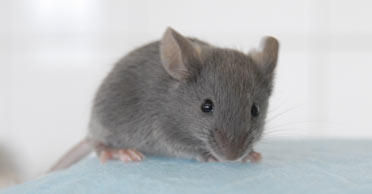Transgenic Service made in Switzerland
What we do
mouse models
client institutes
successful projects
How we do it
The Swiss way! You expect quality, and you are entitled to it. We will have sleepless nights if anything doesn’t run smoothly, and we can’t be satisfied if you as a customer are not perfectly happy. Our business is tricky – we know that acting wisely, quickly, and decidedly is what we are called upon constantly, any day: with highest quality infrastructure and best-educated staff. And since we’re efficient, we can also beat low prices.
And of course, we know that just as much as good science, our business is also excellent communication and good relationships to scientists and colleagues.
Why we do it
A point mutation in a heart-relevant gene seems to be linked to arrhythmia – can we confirm this in a mouse model? Within a patient study, an overexpressed gene is found to be linked to cancer – does suppressing it prevent a mouse from getting cancer?
Well-designed mouse models give clear-cut explanations, validate targets in the pharma discovery process, or hypotheses in academic research, and deliver surprising and novel insights that would not be possible otherwise.
Generating them: this is profoundly ethical, deeply complex and interesting, greatly captivating, and fundamentally relevant.
We share your fervor and engagement and are proud to partake in your research!








